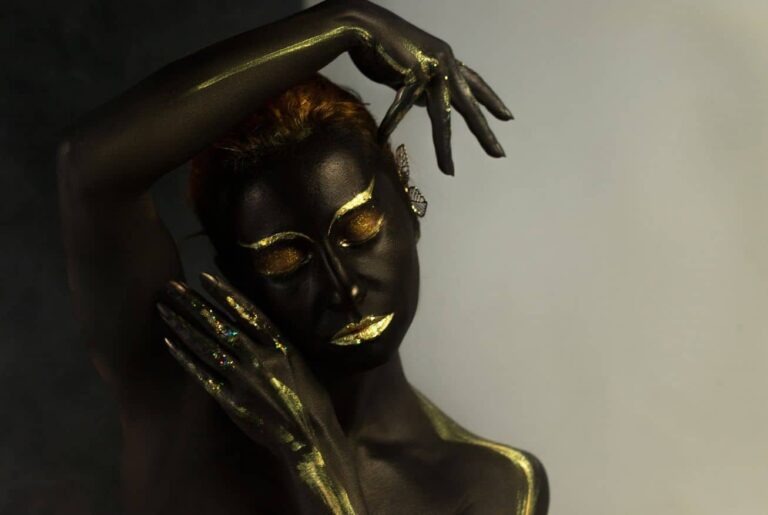Share with friends:
The nakupenda Malaika song is arguably the most awesome Swahili ballad to have come out of East Africa – if not the whole of Africa. This song was once loved by the young, old, and all those that set foot on the African content in search of indigenous African sounds.
Its popularity is reflected in the numerous cover versions done by artists around the globe. Some of them include Miriam Makeba, Angélique Kidjo, Pete Seeger, The Hep Stars, Safari Sound Band, Nana Mouskouri, Harry Belafonte,
Bollywood too, did not escape the Malaika spell. Over the years, the Indian movie fan base has been treated to its magic through soundtracks such as Tu Jahan Bhi Jayegi and Gawah Hain Chand Taare Gawah Hai.
What is Nakupenda Malaika all about?
The Swahili song nakupenda Malaika highlights the theme of love viz-a-viz poverty in contemporary Africa. It tells the story of a young man whose love for his dream girl – Malaika is doomed because he cannot afford her asking bride-price.
As the custom dictates and on a sad note, Malaika is taken away from him and married off to another man who is able to afford the bride price!
Sad indeed.
The heartbroken young man then writes a song for her which he names Malaika (Angel in English). This is probably his last gasp attempt to win her over, or simply, a nostalgic trip to relive the good memories.
… but who composed the song!
While the sentimentality of Malaika is dear to the heart, the story behind its creation is shrouded in age-long controversy and mystery. Even today, in the 21st century, nobody is FULLY credited for having composed it!
Though royalties and copyright are attributed to Fadhili William, a section of its fanbase and historians are not entirely convinced it was him who composed the song.
The controversy is not limited to East Africa alone. The origin of the song is traced to other artists and countries in Africa and beyond.
In the following discourse, we trace the history of various artists and individuals in relation to the ‘famous ‘nakupenda Malaika’ song:
1. Fadhili William Vs Adam Salim
The dispute is particularly big in East Africa because it pits Kenyan versus Tanzanian music heritages. Kenyans believe the song was written by one of their own, while Tanzanians think the opposite is true.
On the one hand, is Fadhili William who is a Kenyan, and on the other is Adam Salim, who is a Tanzanian! Talk about having your cake and eating it too!
– Fadhili William & his Malaika story
Fadhili William (RIP) was born Fadhili William Mdawida on 11th November 1938 – in Kenya. Many Kenyans believe he was the true composer of Malaika and he, of course, had a story to prove this.
He claimed it all happened when he was still in school and fell in love with a girl named Fanny. She was allegedly very beautiful, and Fadhili nicknamed her Malaika.
Unfortunately, William was unable to pay for her dowry when the time came for betrothal. The reason being that he was poor, and his father had died when he was only two years old.
Fanny was subsequently married off to a rich man.
Fadhili William decided to compose the song for her, and Fanny listened to it on the radio. Her husband, too, listened to the song though unaware of its hidden meaning.
– Adam Salim & his Malaika story
Adam Salim (RIP) was born in 1916 in Tanzania and claimed he was the original composer of Malaika.
Many Tanzanians SERIOUSLY believe Salim wrote the song and should be recognized for it.
Adam Salim too had a story to prove he was the writer.
His story goes thus – he fell in love with a girl named Halima Binti Ramadhan Maruwa and just like William, he was unable to afford the asking bride. She was subsequently married off to a rich Indian man.
And like William, he too decided to compose a song in her memory.
… a Fadhili William mischief?
Well, Adam Salim told of another twist to the story, about how Fadhili William stole the song from him!


He told a story about how he was a car mechanic and a musician who performed in Nairobi nightclubs in the 1940s – 50s. It was during these years that he composed and sang Malaika.
It is said that Fadhili William was one of his young proteges who listened, loved, and SADLY, copied the song.
The young Fadhili beat Salim to Columbia East African Music Company studios in 1960, where he officially recorded the initial two verses of the song. He did the recording in the company of the Jambo Boys band!
The story is told about how Fadhili cashed Salim 60 Kenyan shillings, as a token of appreciation.
Who knows, maybe this sealed a verbal agreement between the two, something the rest of us will never know.
Very little is known about Adam Salim, but that he was hospitalized in Nairobi for 3 years following a nasty car accident in the late 1950s. He later traveled back to Moshi in Tanzania, where his parents lived.
He married another woman and settled down as a bicycle mechanic in Morogoro.
2. The Miriam Makeba controversy
World-famous South African musician, Miriam Makeba (1932 – 2008), is also part of the Malaika controversy. Hers was a story of recording rights gone wrong.
Makeba’s first encounter with the song was in 1963 when she was invited to perform during Kenya’s Jamuhuri Day celebrations. The invitation came from the then flamboyant Kenyan politician Tom Mboya, who requested she performs alongside Harry Belafonte.
Before and during the ceremony, David Amunga, a Kenyan veteran musician, was subscribed to help her master a dosage of Swahili vocabulary and phrases.
Tom Mboya also scribbled the lyrics of Malaika and inadvertently added the ‘pesa’ verse which was not part of the original song. The verse was smuggled from another of Fadhili William’s songs, who also added this verse to his later recordings of Malaika.
Meanwhile, Makeba took the unwarranted liberty to record the song under her label when she traveled back to the USA! This did not go down well with Fadhili William, who took her to court. With the help of American Peter Colmore and his producer Charles Worrod, William triumphed and definitely annoyed Makeba.
She decided to hit Fadhili William and Kenyans where it hurt most:
In her subsequent performances of the song, including the Live Performance of Homeland CD, Miriam Makeba taunted Kenyans when she said the famous Swahili song was from Tanzania!
3. Nakupenda Malaika from Burma and Cuba!
One last twist to the Malaika story claims the song was composed far away in Burma or
The song was particularly popular amongst the men in uniform who served under the British Kings African Rifles.
Fundi Konde (RIP), who regularly entertained the soldiers, also performed in bars around Nairobi. He did not, however, claim to have written it.
The Cuban twist to the story claims the Swahili version of nakupenda Malaika is Spanish by origin, owing to its Bolero-Bossa Nova style. Bossa Nova beat is much reminiscent of both Cuban and Mexican musical heritage whose roots stretch as far back as the 1940s and 50s.
Interestingly, no one in Cuba or Burma has ever claimed authorship of the song.
4. Who else may have composed Malaika?
Other claims and counter-claims have been told dating back to the 1940s as to who else composed Malaika.
Grant Charo, Williams’s brother-in-law, and Lucas Tutu are just some of them.
One source actually credits Charo for recording the song even before Fadhili William. The latter reportedly played mandolin in the recording.
So, who actually composed Malaika?
The Malaika dispute is reminiscent of the popular Imbube song in The Lion Sleeps Tonight by Linda, who died without recognition for his work.
In the case of Malaika, Fadhili William and Adam Salim too are long gone, and the dispute is yet to be solved. Even today in the 21st century, the mystery continues to linger.
Could it be true, however, that Adam Salim was its original composer?


Wow, good breakdown of this wonderful music. Have loved Malaika since I was a little kid back in the 70s
Good to know David. Malaika is definitely a great story to tell
Hello everyone! Want to have fun and earn? Try Notcoin! It’s a easy app where you just tap to win coins. No complicated stuff! Let’s play together: https://tinyurl.com/notcoinz No cost to start!